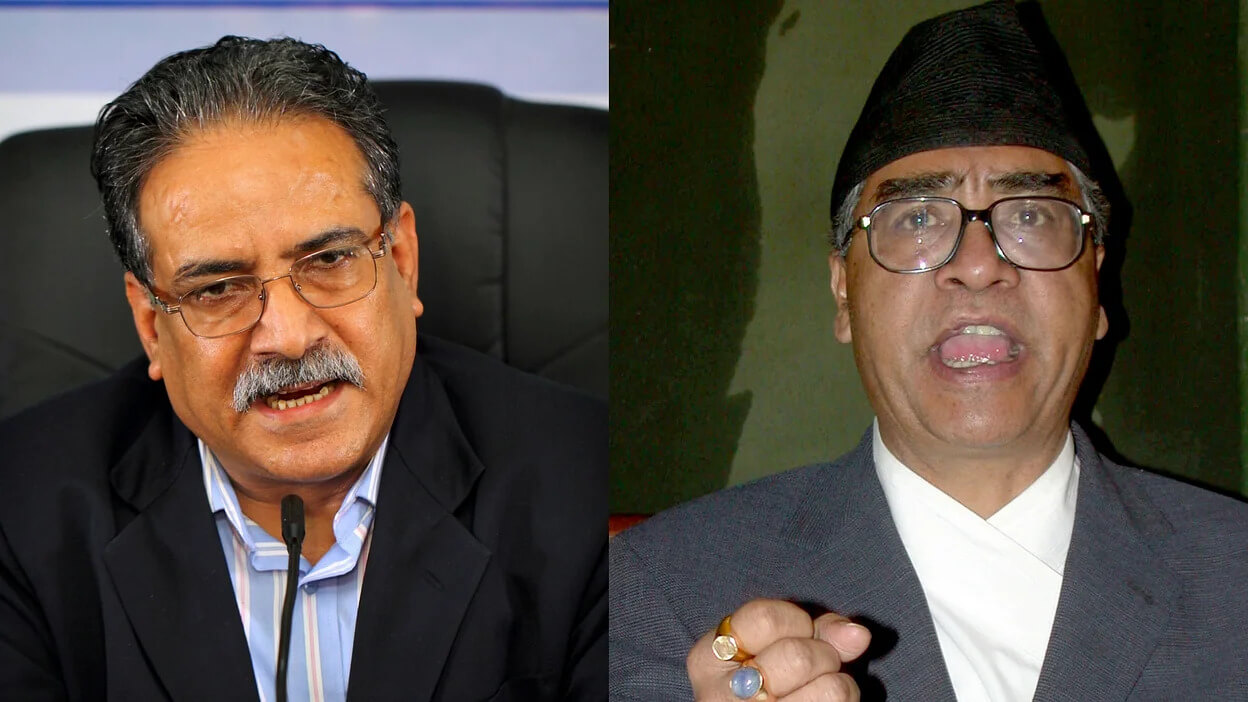KP Sharma Oli has been reappointed as Nepal’s Prime Minister (PM) despite losing a vote of confidence in the country’s lower house of parliament.
Following the vote on Monday, the Nepali Congress (NC) President Sher Bahadur Deuba, Communist Party of Nepal-Maoist (CPN-M) Chairman Pushpakamal Dahal “Prachanda”, and Janata Samajwadi Party Chairman Upendra Yadav jointly released a statement calling on President Bhandari to initiate the process of forming a government. In response, Bhandari set a three-day deadline, giving the leaders until 9 PM on Thursday to form a government and select their candidate to replace Oli. However, after the opposition leaders failed to meet the deadline, Oli, as the leader of the political party with the largest number of seats in the Parliament, was reappointed as the country’s premier. Consequently, Oli will once again take the oath of office and secrecy, and resume his functions as the Nepalese PM.
Just a few hours ahead of the deadline, Deuba had informed his party and other allies that he would not be able to form a coalition that has a majority in the House. While Prachanda had offered his support to the NC, they failed to secure support from the Janata Samajwadi Party. 15 members of the party supported Deuba’s bid, 17 stood against it. Hence, the Nepali Congress and the CPN-M, which have a combined total of 110 votes, fell 26 short of the required to successfully secure a majority and claim the position of PM.
Another blow to Deuba was the about-turn taken by Madhav Kumar Nepal, who is a rebel leader from Oli’s CPN-Unified Marxist-Leninist (CPN-UML) party. Initially, the 28 members that supported Madhav Nepal had decided to resign following Oli’s decision to dissolve the parliament. With this, the strength of the parliament was brought down to 243, which required Deuba to secure merely 122 votes. However, Oli secured Madhav Nepal’s support, by withdrawing Nepal’s and other rebel leaders’ suspension from the party, and engaging in conciliatory talks. Consequently, the 28 leaders decided against resigning, thereby ending Deuba’s efforts to become the PM.
Despite being reinstated, all is not well for the embattled Nepalese premier, who now faces another vote of confidence in 30 days. If he is once again unable to secure the required votes, there will be another attempt to form a government by the opposition parties. However, if both these fail, the country will be forced to head for early elections.
Nepal has been on the brink of a political crisis for months now. The latest blow came after the KP Sharma Oli-led government in Nepal lost its majority in the House of Representatives last Wednesday after the CPN-M officially withdrew its support. This move came after months of failed negotiations following President Bhandari’s decision in December 2020 to dissolve the Parliament and the announcement of fresh elections on April 30 and May 10, 2021. The dissolution of parliament reportedly came on Oli’s recommendation and was met with fierce opposition from rivals in the Nepal Communist Party, including Prachanda, with leaders calling the move “unconstitutional and undemocratic.” In February, however, the Nepalese Supreme Court annulled the government’s move and reinstated the dissolved Parliament, ordering the leadership to summon the House within 13 days.
This also comes amid a months-long intra-party power tussle between Oli and Prachanda, the country’s former Prime Minister, and his rival in the NCP coalition. Oli was elected to power in 2017 for a five-year term. During the NCP’s formation in 2018, the two leaders had negotiated a power-sharing agreement, wherein both Oli and Prachanda would hold the post for Prime Minister for two-and-a-half years each. However, in 2019, the two agreed that Oli would hold the PM post for the entire term and that the position for the Executive Chairman would be given to Prachanda. According to Prachanda, since the “spirit” of the 2019 agreement was not being respected by the PM, he should abide by the 2018 arrangement. However, Oli repeatedly reiterated his unwillingness to step down from his position as the country’s Prime Minister. This created two factions in the NCP, with one group supporting the current PM Oli, and the second group supporting former prime minister Prachanda, which has finally resulted in this week’s events.
Oli Reappointed as Nepal PM As Opposition Fails to Form Majority
KP Sharma Oli will be reappointed as the Nepalese Prime Minister after opposition parties failed to secure a majority to form a new government.
May 14, 2021

Pushpakamal Dahal and Sher Bahadur Deuba. SOURCE: PTI
